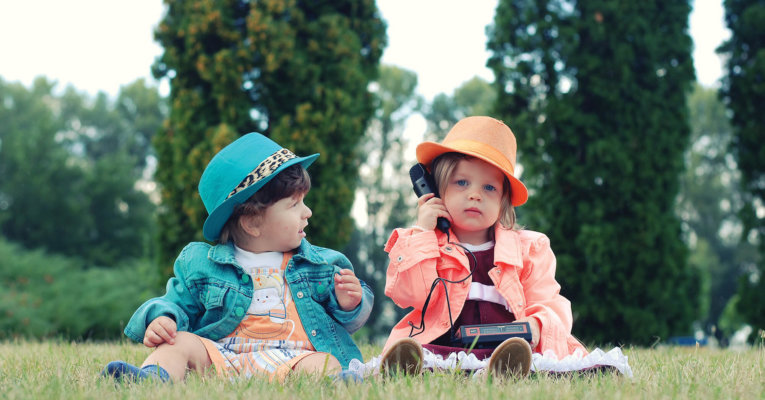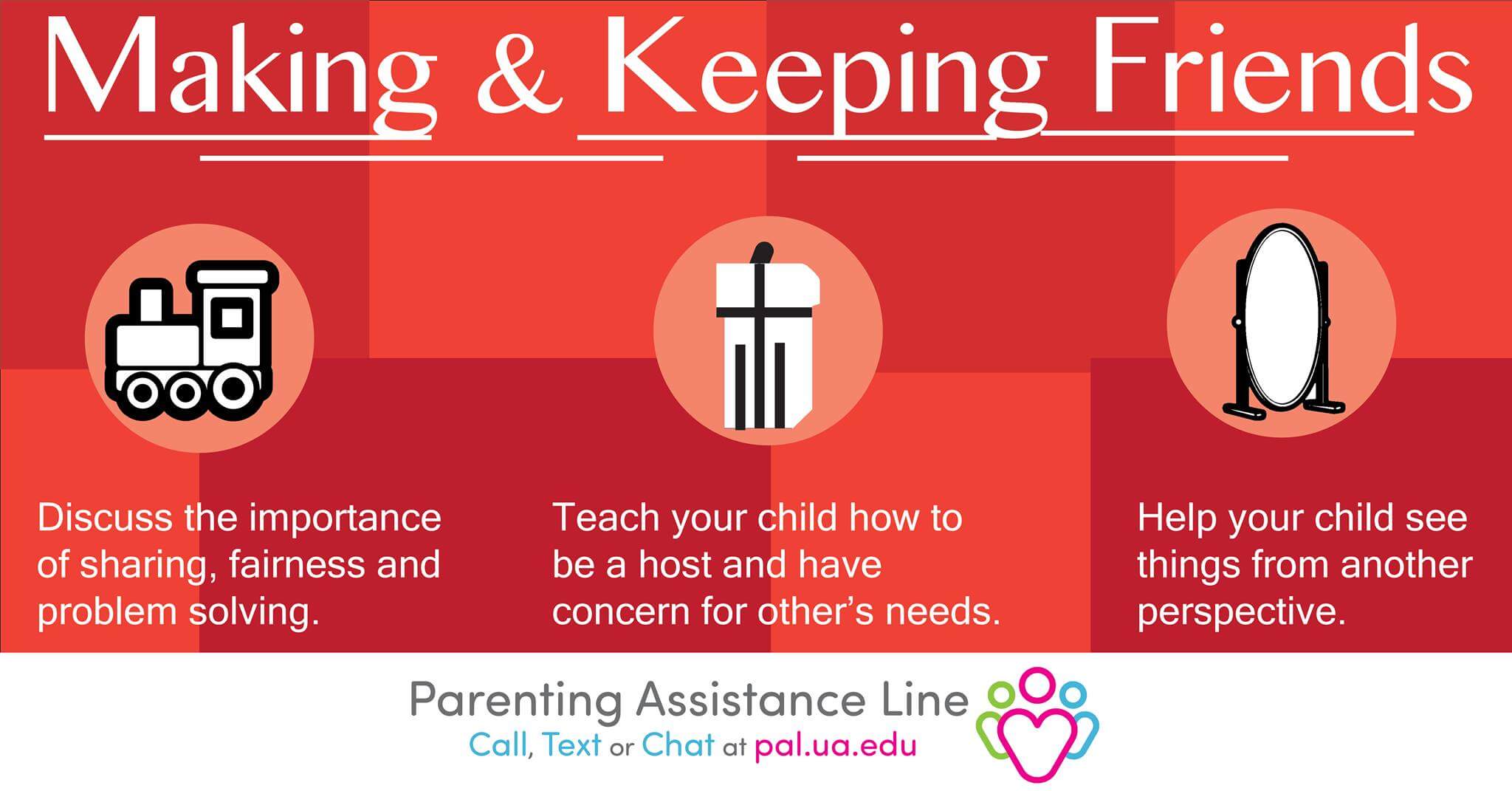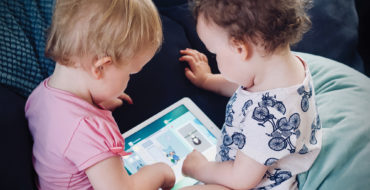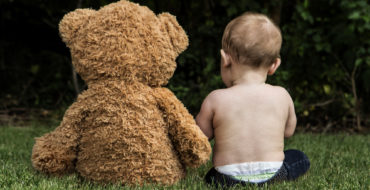Knowing how to make and keep friends is a very important skill for children to learn! Why?
Children who learn how to develop close friendships:
- Tend to engage in fewer risky behaviors as teens and have fewer mental health problems as adults than those who have no close childhood friends.
- Have a higher self-esteem.
- Adjust better in school and do well in their classes.
- Learn important social skills such as cooperation and problem solving.
How can parents help their children learn how to be a good friend?
- Actions speak louder than words!! You can be an example of appropriate social skills when you model cooperation and kindness with others.
- Invite friends over to your house and arrange outings together such as a trip to the zoo.
- Discuss ideas such as fairness, sharing, and problem solving.
- Discourage hurtful behaviors. Help your child see things from another’s perspective.
- Teach your child what it means to be a “host” and how to have concern for another’s needs.
- Discuss what it means to be a loyal friend and discourage the spreading of rumors.
- Teach your child secrets are to be kept, except in the case of harmful situations.
- Help your child learn to recognize and respond to other’s feelings as well as her own.
- Reward your child with affection and encouraging words when you see her being a good friend. For instance you might say, “I really liked the way you let Alex have the last cookie. That was very thoughtful.”







